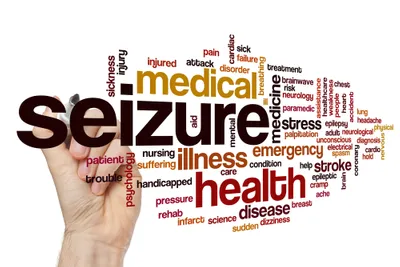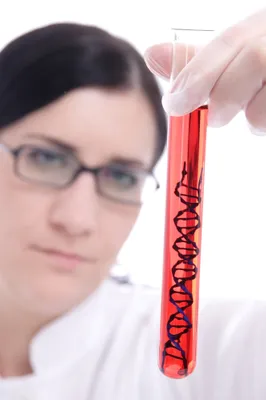Finding a tumor in your body is never a pleasant situation, especially when you don’t know for sure if it’s dangerous until it’s tested. Imagine developing numerous tumors throughout your body—that’s what it’s like living with Tuberous Sclerosis (TSC).
While the tumors associated with this disease are benign (non-cancerous), that doesn’t mean they don’t have any effects on your health. Quite the opposite, actually, meaning they can wreak havoc with your physical and mental health. Here are six facts about Tuberous Sclerosis in time for awareness month in January…
1. Tuberous Sclerosis Can Trigger Seizures
According to the Mayo Clinic, this disease can create “lesions” in the brain that have been associated with seizures. These episodes can be very alarming for witnesses and potentially dangerous to sufferers, who may lose consciousness and be injured.
Since this disease often gets its start during early childhood or even infancy, it is linked with “infantile spasm,” which the clinic says is a common form of seizure and causes “repetitive spasms” of the head and legs.
2. It’s a Genetic Disease
The Mayo Clinic also explains that TSC is a genetic disease, meaning it’s often the result of genes passed down from parents. The genes in question for TSC are called TSC1 and TSC2, which “are thought to prevent cells from growing too fast or in an uncontrolled manner,” notes the source.
It adds that 1-third of people with TSC have inherited these altered genes that present symptoms of the disease. That means the remaining 2-thirds of patients “have a new mutation,” it explains. According to the clinic, if you have TSC you have about a 50-percent chance of passing on the condition to offspring (which may differ in severity).
3. Treatments for Tuberous Sclerosis
While there’s no cure, there are some treatments available, assures BrainFacts.org. The source mentions the FDA has approved a drug called everolimus (Afinitor) that is designed to target a type of brain tumor called subependymal giant cell astrocytomas associated with TSC.
Aside from that, some anti-epileptic drugs can be helpful in managing seizures, and other medications can be considered to control behavioral problems that are also commonly linked to TSC. Surgical procedures can help eradicate skin lesions that are also associated to the disease. There are drug and surgery-free options such as occupational therapy, adds the source. Support groups are also helpful.
4. Each Case in Unique
The way TSC affects each patient varies, according to WebMD. “You might get TSC in certain parts of your body, and TSC might affect someone else differently,” notes the source. You may get light or dark patches on your skin, and some patients end up with breathing problems if the tumors develop in your lungs, it adds.
Regardless of what symptoms you have, remember the aforementioned treatments can provide some improvement in quality of life for patients. There are an estimated 2-million people worldwide with the disease, adds the source.
5. Diagnosing TSC is Often Difficult
Due to the varying symptoms that can affect any given part of your body and organs, it’s understandable that doctors may not pinpoint TSC at first inspection. However, WebMD says doctors are equipped with the right questions to determine TSC, including whether you’re experiencing headaches or seizures and if you have a family history of related problems.
Of course, imaging tests such as a CT scan or MRI can help make a determination as well by spotting tumors within your body. A simple blood test can also confirm if you have the disease based on gene information, it adds. If you or your child is experiencing symptoms that aren’t being addressed, be sure to inform your doctor (and come armed with your own list of questions).
6. There’s an Autism Link
According to Autism Speaks, “Many people who suffer from tuberous sclerosis complex also develop autism,” but it adds that it’s not 100-percent understood why. The source states that, “The incidence of autism in the Tuberous Sclerosis Complex (TSC) is markedly higher than that in the general population,” and that up to 60-percent of autism symptoms are present in children with TSC.
However, a post on the U.S. Library of Medicine explains that a study of 429-patients (children in China) with autism determined that only 5-patients also had TSC, a prevalence rate of only 1.17-percent. The developmental problems in these particular cases were all moderate to severe, adds the source.









